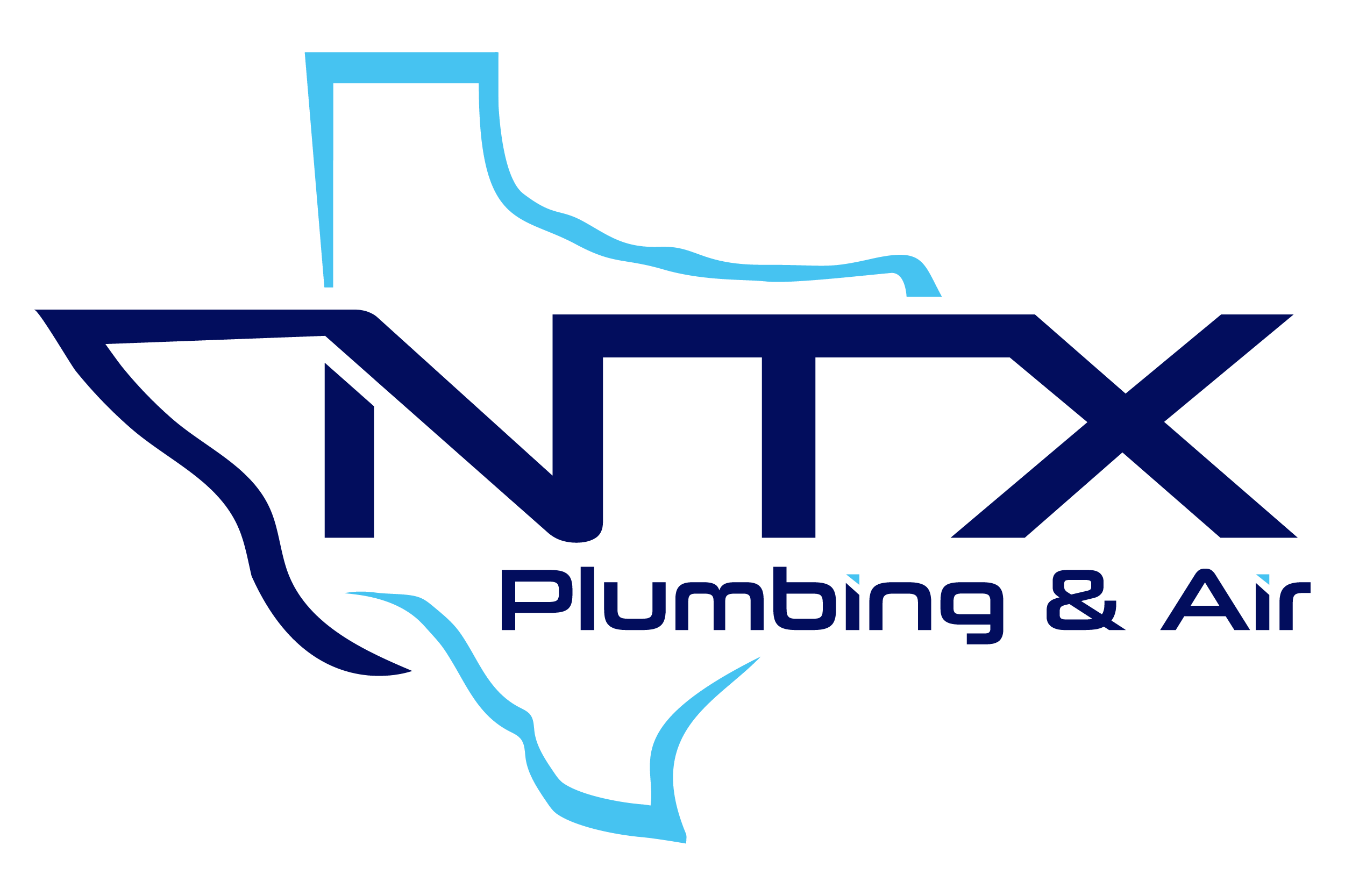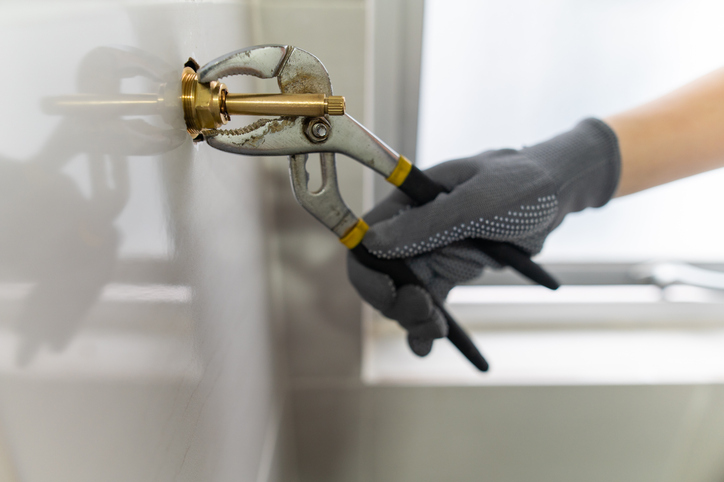Your home’s plumbing system plays a crucial role in daily comfort and efficiency. Over time, pipes deteriorate due to age, corrosion, or wear, leading to leaks, water pressure issues, and contamination. While minor repairs can address some problems, there comes a point when a whole-house plumbing replacement is the best solution. This article explores the key reasons why replacing your home’s plumbing system may be the smartest long-term investment.
1. Frequent Plumbing Issues Indicate System Failure
If you’re constantly dealing with plumbing problems, it may be a sign of widespread pipe failure. Recurring leaks, clogs, or inconsistent water pressure suggest underlying issues that repairs can only temporarily fix. Instead of repeatedly spending on repairs, a whole-house plumbing upgrade provides a permanent solution, eliminating ongoing disruptions and expenses. A failing plumbing system can also cause water contamination, affecting your household’s health. Addressing this issue sooner rather than later prevents extensive damage and ensures a reliable water supply.
2. Aging Pipes Can Lead to Costly Water Damage
Pipes degrade over time, especially in older homes with galvanized steel or polybutylene piping. Corroded or weakened pipes are more prone to leaks and bursts, which can cause severe water damage. Water damage can lead to mold growth, structural weakening, and costly repairs. Replacing the entire plumbing system prevents these issues by eliminating the risk of hidden leaks that can compromise walls, flooring, and the foundation. A proactive approach saves you from dealing with unexpected flooding and expensive restoration projects.
3. Improved Water Quality and Safety
Old pipes can contaminate water with rust, lead, or mineral buildup, leading to discoloration, unpleasant odors, and potential health risks. Waterborne contaminants can affect your skin, hair, and overall well-being. Replacing outdated plumbing with modern, corrosion-resistant materials such as copper or PEX ensures cleaner, safer water for drinking, cooking, and bathing. This upgrade improves water quality and enhances overall household health. Families with young children, elderly members, or individuals with compromised immune systems benefit significantly from an improved water supply.
4. Increased Water Pressure and Efficiency
Over time, mineral deposits and pipe corrosion restrict water flow, reducing water pressure and efficiency. Low water pressure affects shower performance, faucet flow, and appliance functionality. A whole-house plumbing system replacement restores optimal water pressure, enhances energy efficiency, and improves overall water usage in your home. Consistent water flow also helps appliances like dishwashers and washing machines operate more efficiently, reducing wear and tear on these costly household items. Upgrading your plumbing ensures a seamless and comfortable water supply experience.
5. Enhanced Home Value and Market Appeal
A modern plumbing system is a valuable asset for homeowners looking to sell. Buyers prefer homes with updated plumbing, as it eliminates concerns about potential water damage and costly repairs. A newly installed plumbing system reassures potential buyers that they won’t have to deal with major plumbing renovations shortly. Investing in a whole-house plumbing system replacement increases property value and makes your home more attractive to potential buyers. Real estate professionals often highlight upgraded plumbing as a strong selling point, leading to quicker sales and higher offers.
6. Compliance with Modern Plumbing Standards
Older plumbing systems may not meet current building codes or environmental standards. Outdated materials and improper installations could put your home at risk of fines or insurance issues. Updating your home’s plumbing ensures compliance with modern regulations, preventing legal or insurance complications. A new plumbing system also supports water-efficient appliances, reducing water consumption and lowering utility bills. Homeowners looking to renovate or add new fixtures will find a modern plumbing system easier to work with, ensuring seamless upgrades in the future.
7. Energy and Cost Savings in the Long Run
While a whole-house plumbing unit replacement may seem like a significant upfront investment, it leads to long-term savings. Modern plumbing materials prevent leaks, reduce water waste, and enhance system efficiency, lowering monthly water and energy costs. Avoiding repeated repair expenses further adds to the financial benefits of a complete replacement. Additionally, newer pipes have better insulation properties, preventing heat loss in hot water lines and reducing energy consumption. Over time, these savings add up, making the investment worthwhile.
8. Prevention of Unexpected Plumbing Emergencies
Old plumbing systems are unpredictable, with sudden failures leading to emergencies such as burst pipes, major leaks, or sewage backups. These situations can be stressful, damaging, and expensive to fix. A major leak can flood your home, destroy belongings, and cause structural damage, leading to thousands of dollars in restoration costs. By proactively replacing aging pipes, you eliminate the risk of unexpected plumbing disasters and enjoy peace of mind. Having a reliable plumbing system means fewer surprises and a reduced likelihood of emergency calls to a plumber.
9. Avoiding Temporary Fixes and Patching Problems
Repairing one leak at a time may seem cost-effective, but patchwork solutions often lead to more issues. If your plumbing system is failing in multiple areas, continual repairs only prolong the inevitable. A whole-house plumbing unit replacement provides a fresh start, eliminating the need for frequent fixes and ensuring a reliable system for years to come. Many homeowners end up spending more money on repeated repairs over the years than they would on a full plumbing upgrade. Investing in a long-term solution prevents frustration and future financial strain.
10. Choosing the Right Materials for Durability
A whole-house plumbing upgrade gives homeowners the chance to select high-quality materials that last for decades. Copper, PEX, and CPVC are popular options known for their durability and resistance to corrosion. PEX piping is flexible and resistant to freezing, making it a great choice for homes in colder climates. Copper pipes are long-lasting and have natural antimicrobial properties, improving water quality. By choosing the right materials, you ensure a durable and efficient plumbing system that requires minimal maintenance.
11. Professional Assessment for the Best Solution
Before committing to replacing the whole-house plumbing unit, a professional plumber can assess your existing system to determine the best approach. A thorough inspection helps identify weak points, potential future problems, and the most suitable replacement materials. Working with an experienced plumber ensures a seamless installation process with minimal disruption to your daily life. Investing in professional services guarantees that your plumbing system will function optimally for years to come.
A whole-house plumbing replacement is a worthwhile investment for homeowners facing recurring plumbing problems, aging pipes, or water quality concerns. Upgrading your plumbing system prevents costly damage, improves efficiency, and enhances home value. If you’re experiencing frequent plumbing issues, consult a professional plumber to determine if a complete replacement is the best solution for your home. Deciding to replace your plumbing now can save you from major headaches and expenses in the future.
Upgrade your home’s plumbing with expert plumbing replacement services from NTX Plumbing! Ensure efficiency, reliability, and long-term savings. Contact us today to schedule an inspection!





